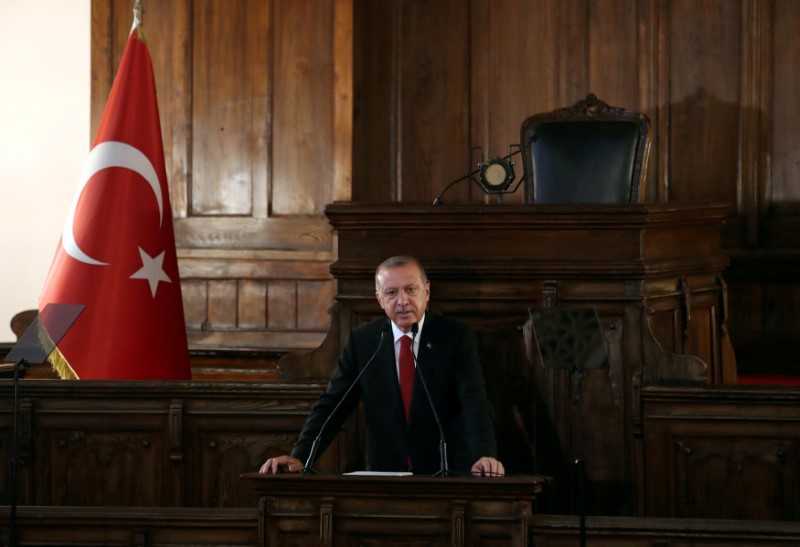Investing.com – With 52% of the votes, Recep Tayyip Erdogan has been confirmed as Turkey’s president until 2028, beating opposition leader Kemal Kilicdaroglu, who garnered just under 48% of the votes, in the second round.
Speaking after the victory, Erdogan, now a ‘sultan’ in Turkey for 20 years, called on the people to put aside all debates and conflicts regarding the election period and unite around their national goals and dreams.
Erdogan said they were not the only winners, and that the real winners are Turkey and its democracy. Kilicdaroglu, on the other hand, called the elections the most unfair in recent years.
In addition to Turkey’s foreign policy stance, concerns are growing over the country’s domestic economy – crippled by high inflation, stagnant economic growth and the devaluation of the Turkish .
As such, the local currency is moving toward new lows in line with Erdogan’s fiscal policy, which is unlikely to adopt a new paradigm in the years ahead. At the moment, a lira is worth less than 5 cents, while the dollar is moving above TRY 20, near the all-time low of TRY 20.1.
In recent years, the government and central bank have pursued a policy that is considered unorthodox, i.e., continuing to lower interest rates even in an environment of hyperinflation, thus causing the lira to collapse and sending the public accounts into a tailspin.
To prop up the lira, since the last currency crisis in 2021 the central bank has been constantly intervening in the exchange rate, using gold and foreign exchange reserves to support its value.
Measures such as these have attracted several critics from outside who see the lira as a controlled currency and no longer subject to rates decided by the market, and is ‘free-floating’.
Prior to the second round, Richard Briggs, senior fund manager, Emerging Market Debt at Candriam, said in a note sent to Investing.com that the massive interventions by the central bank and local banks will create greater imbalances that Turkey will have to resolve when the time comes.
Turkey has always had vulnerabilities, Briggs had pointed out, but over the past three years the country has increasingly been stalling, financed by deposits from other central banks, particularly the Gulf states, and deposits from Russia after the invasion of Ukraine.
He warned that if Turkey continues to run large current account deficits, once these flows stop or reverse, the pressure on the currency and economy could be severe in the absence of a credible policy framework, which is less likely under the current administration.
(Translated from Italian)
Read the full article here













